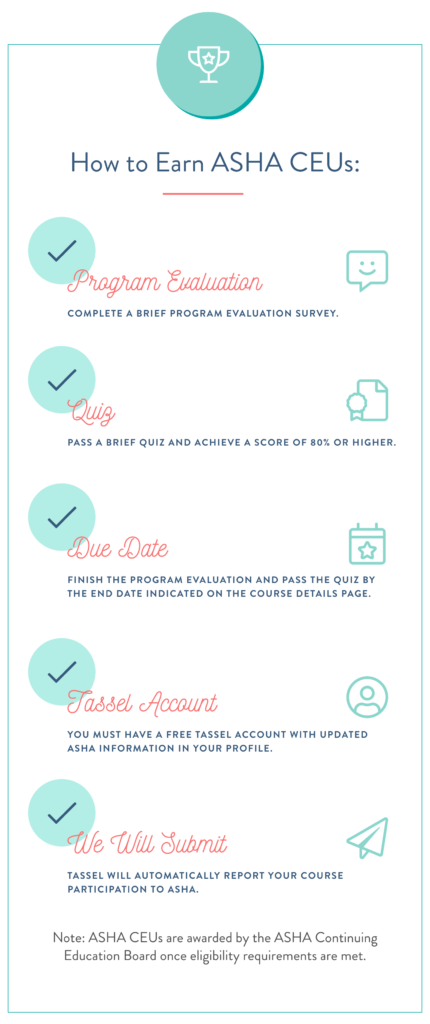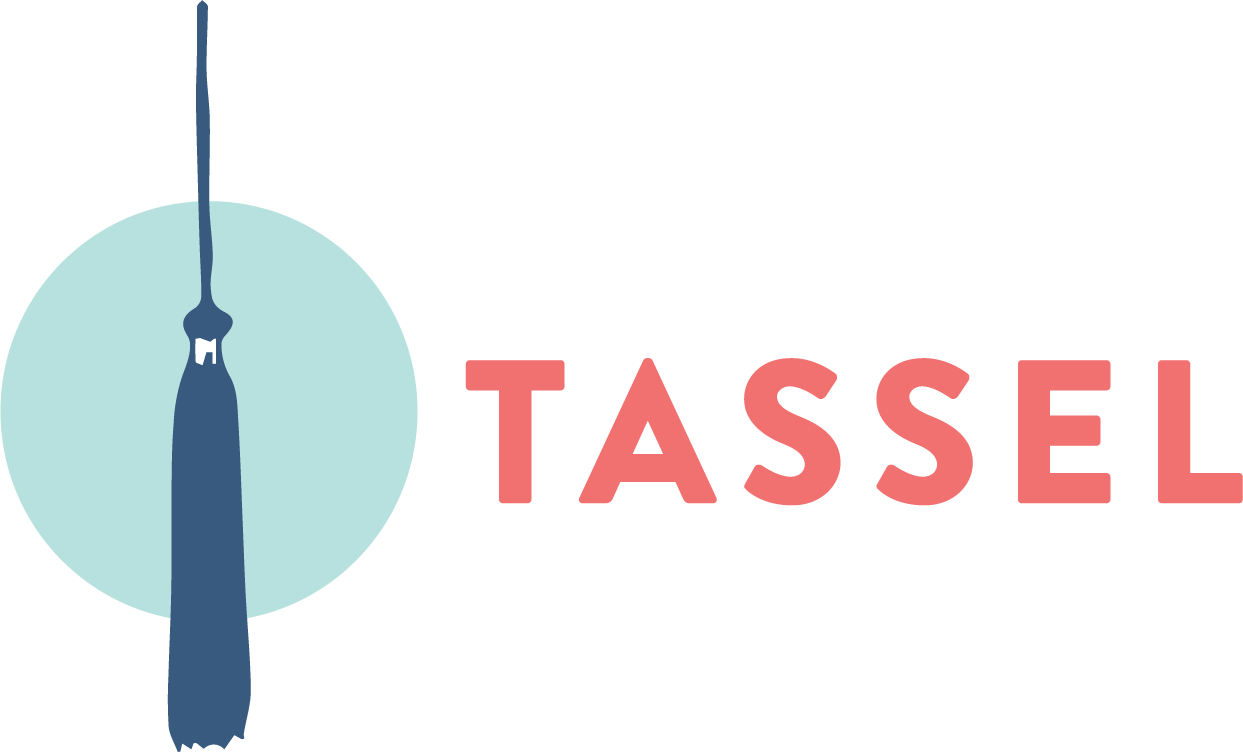Course Number: ABIO2503
When: Available April 1, 2025 – April 1, 2030
Where: Available under “Course Content” at the bottom of this page.
Description: This 3-part course explores how diversity, equity, and inclusion (DEI) principles intersect with augmentative and alternative communication (AAC), addressing barriers AAC users face due to cultural, neurodiversity, and accessibility challenges. Participants gain strategies to create inclusive, affirming AAC environments by recognizing cultural differences, implementing neurodiversity-affirming practices, and applying trauma-informed care to support meaningful communication.
Who This Course Is Good For:
- Speech-Language Pathologists (SLPs) – Working in schools, clinics, hospitals, or private practice, looking to integrate DEI principles into AAC assessment and intervention.
- Occupational Therapists (OTs) – Supporting AAC users in developing communication access within daily activities and self-advocacy.
- Special Educators & General Educators – Seeking strategies to create inclusive classrooms that support AAC users’ diverse communication and literacy needs.
- Assistive Technology Specialists – Working to ensure AAC systems are accessible, functional, and culturally responsive.
- Behavior Analysts & Mental Health Professionals – Incorporating trauma-informed and neurodiversity-affirming approaches into therapy for AAC users.
- Caregivers & Family Members – Looking to better understand how to support AAC users with affirming, culturally responsive communication practices.
Presenters:
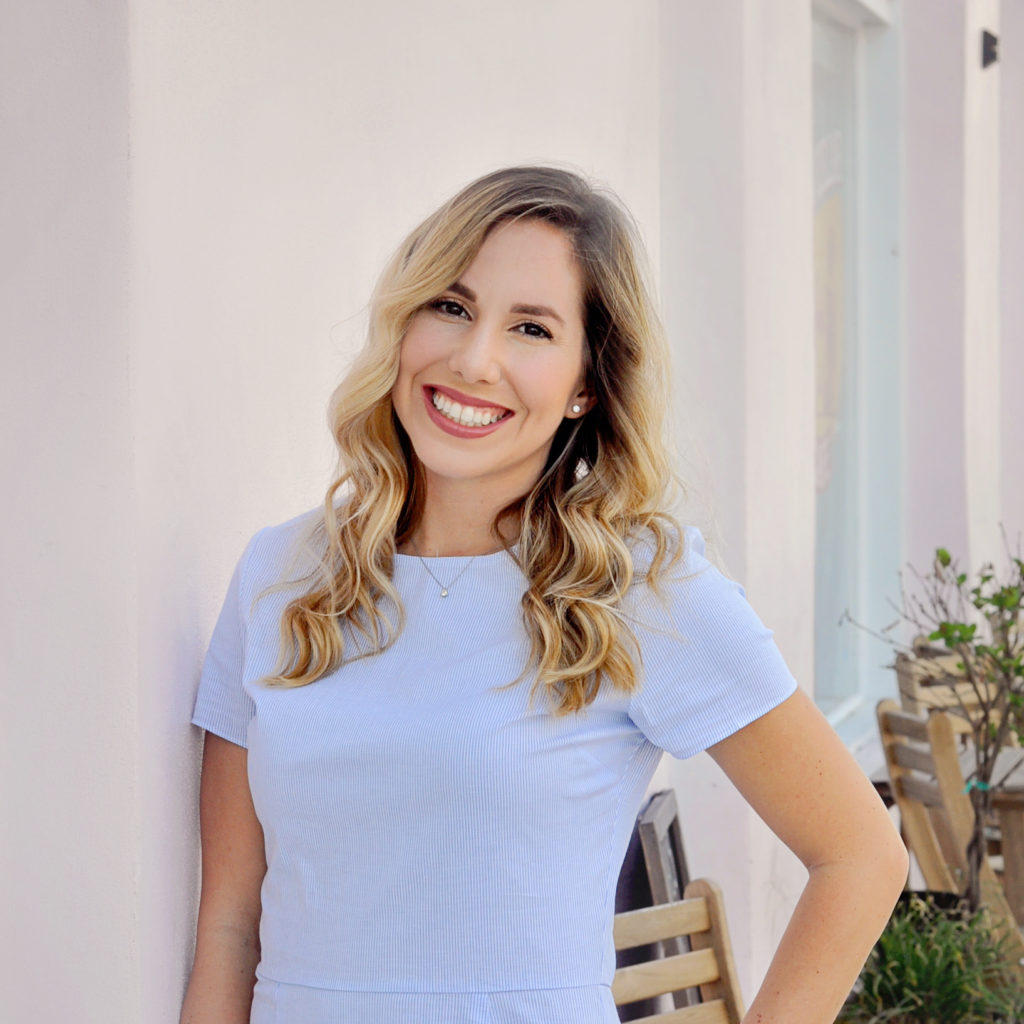
Venita Litvack, M.A, CCC-SLP
Venita is an Assistive Technology (AT) Consultant in south Florida. She has a passion for using AAC, AT, and literacy to support individuals with complex communication needs, autism, and other disabilities. Venita has delivered poster presentations on several topics related to AAC at ASHA and co-presented several ASHA CEU accredited courses. Venita co-authored two articles published in ASHA Leader’s online publication, as well as the Lou Knows What to Do book series published by Boys Town Press. Recently, Venita started utilizing the power of social media to empower and motivate educators across the country through the Speechie Side Up podcast, blog, Instagram account, and YouTube channel.
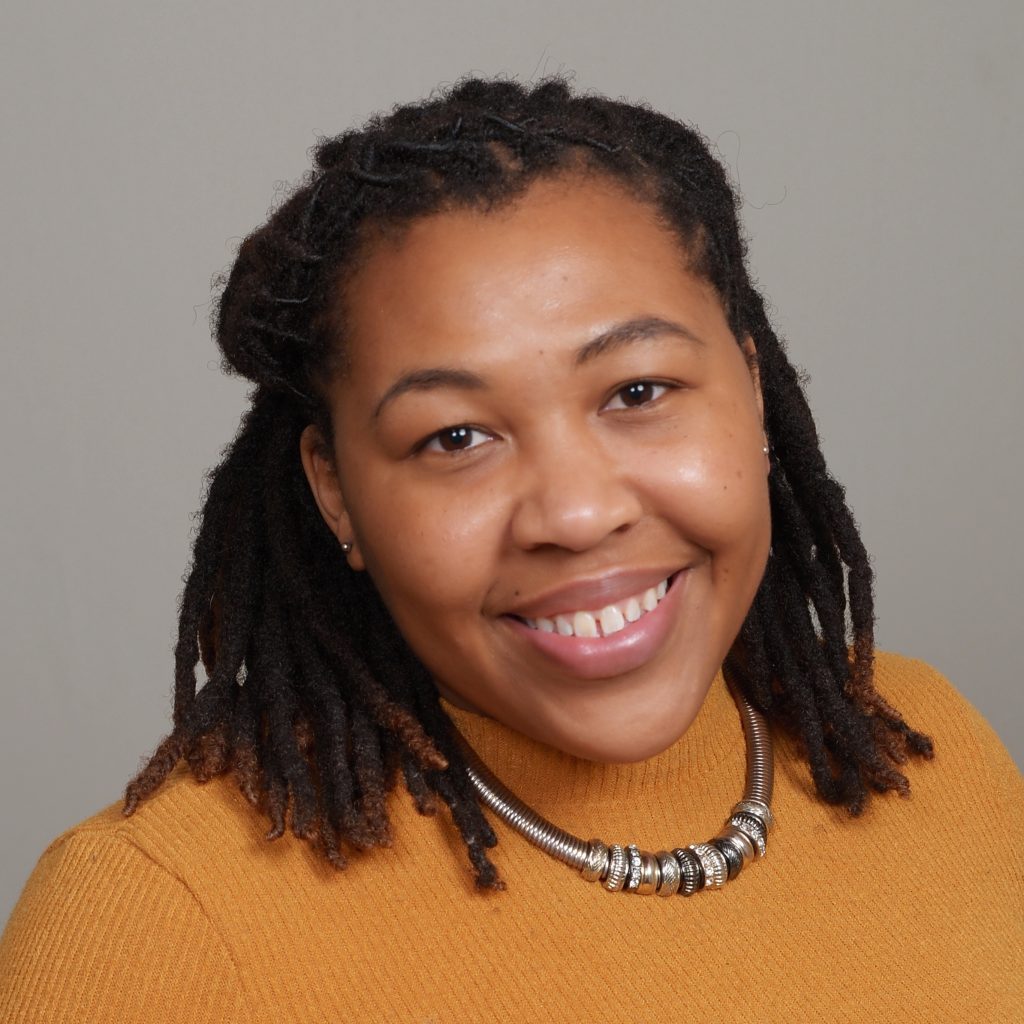
Christina Royster, EdD, CCC-SLP
Christina Royster is the owner/founder of Play on Words Therapy, LLC. She is licensed in Maryland and Washington DC and has been practicing for over nine years. Christina specializes in working with complex communication needs and language delays. She also specializes in augmentative and alternative communication (AAC), as she works on an AAC team in the public school setting. Christina is a co-creator in Diverse AAC, which aims to increase awareness and provide information related to diversifying AAC for multicultural AAC users. Christina is also passionate about increasing diversity in the SLP field. She is a member of the ASHA Special Interest Group 12 (AAC), International Society for AAC (ISAAC), Maryland Speech-Language-Hearing Association, DC Speech-Language-Hearing Association, and the National Black Association for Speech-Language and Hearing.
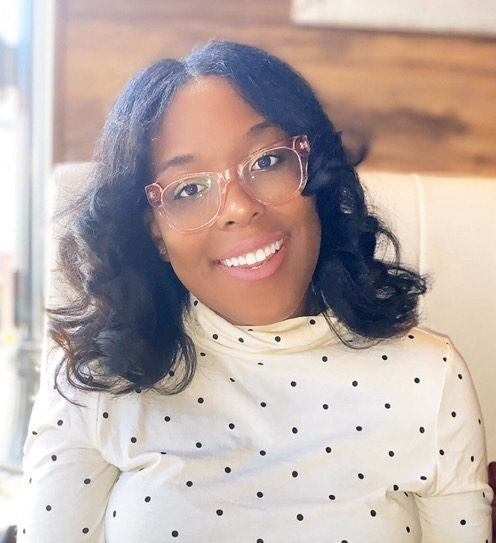
Cara Walton, M.A.,CCC-SLP
Cara Walton, an ASHA certified speech-language pathologist, who lives in Columbus, Ohio. She specializes in AAC, autism, and other mental health diagnoses in children (e.g., Oppositional Defiant Disorder (ODD), Conduct Disorder (CD). Cara has a passion for advocating for underrepresented voices in the speech-language pathology/audiology field. She is the writer of a change.org petition, “Demands for ASHA to Increase Cultural Sensitivity.” This petition was able to achieve 15,000 signatures in 21 days and was sent to the ASHA Board of Directors. Cara continues to advocate for minority SLPs, AUDs, clients, and students. You can follow her journey through advocacy and focusing on self care on instagram @thebuckeyeslp.
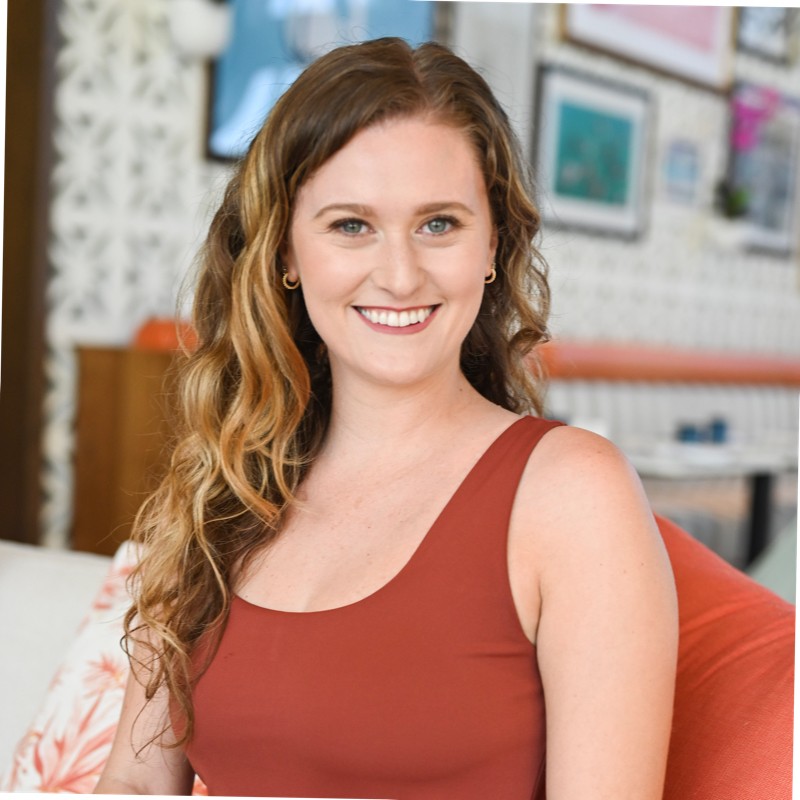
Rachel Archambault, MA CCC‐SLP (she/her)
Rachel is an SLP Program Specialist in Broward County, Florida. Her journey into the realm of trauma-informed care began during her tenure as an SLP at Marjory Stoneman Douglas High School in Parkland, Florida. Unfortunately, on 2/14/18, a traumatic event unfolded at her workplace. This experience prompted her to seek resources for her students who had undergone trauma. In her quest, Rachel discovered trauma-informed care and has been dedicated to sharing its principles with SLPs and related fields ever since.
Recognizing the need for a platform to share resources, answer questions, and support fellow SLPs practicing trauma-informed care, Rachel created @PTSD.SLP. Her commitment to advancing the field doesn’t stop there; she is also a cohost of the Speech Science Podcast. Moreover, Rachel recently founded PTSD SLP, LLC, aimed at providing trauma-informed consultations and presentations to educators and healthcare providers. Through her initiatives and expertise, she continues to make a profound impact in promoting understanding and care for individuals who have experienced trauma.
Disclosure Statements
Speakers Disclosure Statements (Open)
Venita Litvack has the following relevant relationships to disclose: ownership interest in Speechie Side Up, LLC and Tassel Learning, LLC; royalties from the Lou Knows What to Do book series. Venita is a member of the ASHA Special Interest Group 12.
Cara Walton has the following relevant relationships to disclose: full time, salaried employee of a nonprofit outpatient clinic locate in Columbus, Ohio. Cara is amember of the National Black Association for Speech-Language and Hearing; member on a project committee aimed at creating black synthesized voices for AAC systems that includes Assistiveware, Tobii Dynavox, and PRC-Saltillo.
Christina Royster has the following relevant relationships to disclose: ownership interest in Play on Words Therapy, LLC and compensation for this course. She is also a member of the ASHA Special Interest Group 12 and ISAAC.
Rachel Archambault has the following relevant relationships to disclose: She is a full time employee at Broward County Public Schools, a paid consultant/speaker PTSD SLP LLC, and owner of PTSD SLP LLC. Rachel is a member of the ASHA Special Interest Group 20.

Learning Outcomes
As a result of this activity, participants will:
- Identify barriers AAC users face due to cultural, neurodiversity, and systemic accessibility challenges.
- Describe at least two considerations related to multicultural and multilingual AAC users.
- Explain the principles of trauma-informed care and recognize the impact of trauma on AAC users.
- Describe at least 2 strategies to create inclusive AAC environments that reduce harm, promote equity, and support authentic self-expression.
Agenda
| Module 1 | 1:00:00 | How to Diversify Your AAC Therapy |
| Module 2 | 1:00:12 | How to Promote Cultural Diversity in AAC Assessment & Treatment |
| Module 3 | 1:02:14 | Trauma Informed Care & AAC |
Complaint Policy
To file a complaint or ask general questions about the complaint filing process, please contact our support team at info@tasseltogether.com
Refund Policy
Click here to read more about our refund policy.
Requirements
